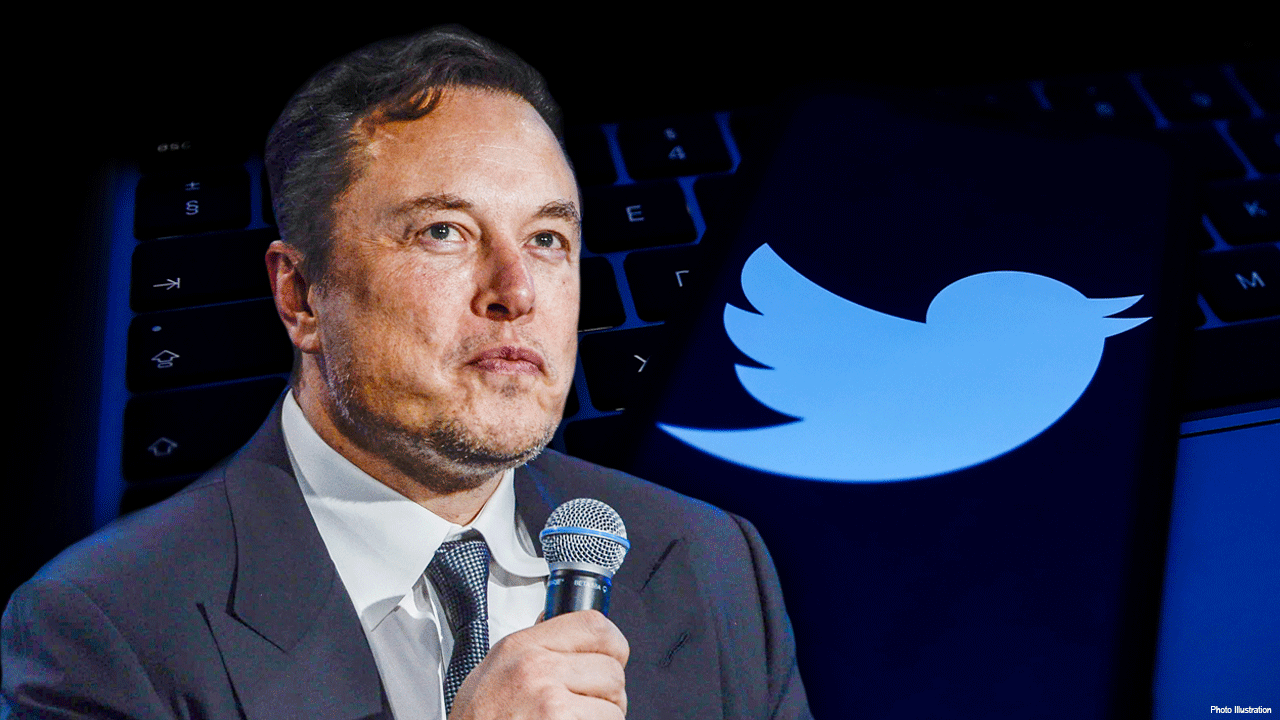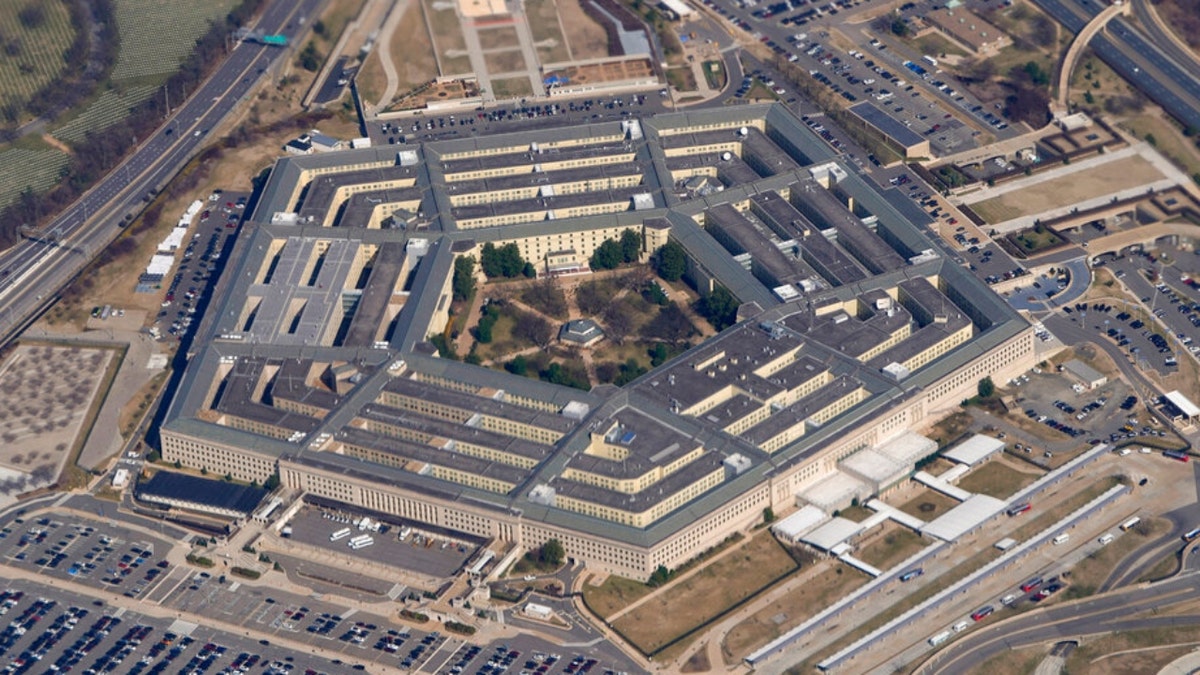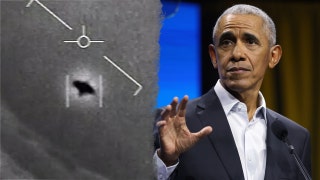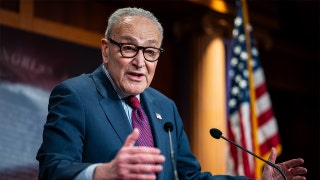Miranda Devine issues warning on FBI's relationship with Twitter: 'Every American should be very concerned'
New York Post columnist Miranda Devine joined 'America's Newsroom' to discuss the fallout over the Twitter Files and why Americans should be 'very concerned' over what it reveals.
Investigative journalist Lee Fang released the eighth edition of the "Twitter Files" on Tuesday, putting a spotlight on how the social media juggernaut "quietly aided the Pentagon’s covert online PsyOp campaign."
"Despite promises to shut down covert state-run propaganda networks, Twitter docs show that the social media giant directly assisted the U.S. military’s influence operations," Fang wrote to kick off the lengthy thread detailing the company's role in an alleged online psychological operation aimed at shaping opinion in the Middle East and beyond.
Elon Musk had been vocal about being transparent when it comes to Twitter's past and present actions curating content on the platform, including censored content. The Twitter owner has enlisted journalists to slowly release evidence of these actions in a series dubbed the "Twitter Files" that continue to expose once-secret communications.

Billionaire industrialist Elon Musk took over Twitter in late October and immediately fired several top executives. (Jakub Porzycki/NurPhoto, CARINA JOHANSEN/NTB/AFP via Getty Images (Photo illustration))
Fang disclosed he was "given access to Twitter for a few days" but didn’t sign or agree to anything specific. He added that Twitter "had no input" into his reporting, but searches were carried out by a Twitter attorney so what he saw could be limited.
The viral thread explained that Twitter "has claimed for years that they make concerted efforts to detect" and "thwart gov-backed platform manipulation," including in testimony to Congress, but findings indicate that is not the case.
"[B]ehind the scenes, Twitter gave approval & special protection to the U.S. military’s online psychological influence ops. Despite knowledge that Pentagon propaganda accounts used covert identities, Twitter did not suspend many for around 2 years or more. Some remain active," Fang wrote.
Fang’s examples included a 2017 email from U.S. Central Command listing 52 Arab-language accounts it used to "amplify certain messages." Twitter allegedly helped give the accounts additional visibility and made them exempt from spam and abuse flags.
The accounts, which tweeted about "U.S. military priorities in the Middle East," were initially openly affiliated with the government, but the relationship was eventually hidden from users, according to Fang.
"CENTCOM then shifted strategies & deleted disclosures of ties to the Twitter accounts," Fang wrote. "One Twitter official who spoke to me said he feels deceived by the covert shift. Still, many emails from throughout 2020 show that high-level Twitter executives were well aware of DoD’s vast network of fake accounts & covert propaganda and did not suspend the accounts."
TWITTER FILES PART 6 REVEALS FBI'S TIES TO TECH GIANT: 'AS IF IT WERE A SUBSIDIARY'
On Monday, the seventh edition of "Twitter Files" delved into how the FBI and intelligence community "discredited factual information about Hunter Biden’s foreign business dealings."
Independent writer Michael Shellenberger revealed what he called an "influence campaign" by the FBI that eventually "worked" when Twitter censored Hunter Biden’s scandalous laptop.
Journalist Matt Taibbi went viral with the first installment in early December with his "Twitter Files" focusing on Twitter's internal discussions leading to it censoring the Hunter Biden laptop story during the 2020 presidential election, with some officials struggling to explain how it violated its "hacked materials" policies.
It was later revealed that the first batch of "Twitter Files" were vetted without Musk's knowledge by Jim Baker, who previously served as the FBI's general counsel and was involved in the Russia probe, but was working for Twitter ahead of the 2020 election, got involved. Musk fired Baker shortly thereafter.
Fang continued to put a spotlight on Baker in the eighth installment of "Twitter Files."
Fang also shared emails from other Twitter lawyers and executives, including speculation that the Pentagon wanted to retroactively classify its social media activities "to avoid embarrassment."
"In several other 2020 emails, high-level Twitter executives/lawyers discussed the covert network and even recirculated the 2017 list from CENTCOM and shared another list of 157 undisclosed Pentagon accounts, again mostly focused on Middle East military issues," Fang wrote.
"Many of these secretive U.S. military propaganda accounts, despite detection by Twitter as late as 2020 (but potentially earlier) continued tweeting through this year, some not suspended until May 2022 or later, according to records I reviewed," Fang wrote.
Fang noted, "In August 2022, a Stanford Internet Observatory report exposed a U.S. military covert propaganda network on Facebook, Telegram, Twitter & other apps using fake news portals and deep fake images and memes against U.S. foreign adversaries," including Russia, China and Iran.
He was able to confirm that Stanford correctly identified one from CENTCOM's 2017 email.
"In subsequent reporting, Twitter was cast as an unbiased hero for removing ‘a network of fake user accounts promoting pro-Western policy positions.’ Media covering the story described Twitter as evenly applying its policies & proactive in suspending the DoD network," Fang wrote. "The reality is much more murky. Twitter actively assisted CENTCOM’s network going back to 2017 and as late as 2020 knew these accounts were covert/designed to deceive to manipulate the discourse, a violation of Twitter’s policies & promises. They waited years to suspend."
Fang wrote that "Twitter’s comms team was closely in touch with reporters, working to minimize Twitter’s role" throughout the process.
"The conduct with the U.S. military’s covert network stands in stark contrast with how Twitter has boasted about rapidly identifying and taking down covert accounts tied to state-backed influence operations, including Thailand, Russia, Venezuela, and others since 2016," Fang wrote.
Fang concluded the thread with a link to a piece he wrote for The Intercept that has "more detail" about Twitter’s relationship with "government-backed covert propaganda campaigns."
In The Intercept article, he wrote that Twitter "provided direct approval and internal protection to the U.S. military’s network of social media accounts and online personas, whitelisting a batch of accounts at the request of the government" and the Pentagon "has used this network, which includes U.S. government-generated news portals and memes, in an effort to shape opinion in Yemen, Syria, Iraq, Kuwait, and beyond."
Twitter has been directly assisting the Pentagon for at least five years, according to Fang.

The Pentagon is seen from Air Force One as it flies over Washington, March 2, 2022. ((AP Photo/Patrick Semansky, File))
The second installment of Twitter Files previously published by Weiss revealed Twitter's "blacklisting" of prominent conservatives, including Fox News host Dan Bongino, Turning Point USA's Charlie Kirk, as well as Stanford University's Dr. Jay Bhattacharya, a longstanding opponent of COVID groupthink during the pandemic who expressed opposition to lockdowns.
Internal communications also reveal Twitter staffers admitting that the popular account Libs of TikTok never violated its "hateful conduct" policy despite being punished several times for allegedly doing so.
Those revelations appear to contradict what former Twitter CEO Jack Dorsey told Congress in 2018, saying under oath that Twitter did not censor or shadowban conservatives.
CNN'S ‘TWITTER FILES’ COVERAGE INVOLVING HUNTER BIDEN LAPTOP STORY HAS GLARING OMISSIONS
The third, fourth and fifth installments of the "Twitter Files" focused on the permanent suspension of former President Trump around the Capitol riot events in January 2021. Taibbi reported how Twitter circulated election-related tweets from various users leading up to the 2020 election that were "flagged" by the FBI as being problematic.
Part six of the "Twitter Files" put a spotlight on Twitter's close ties with the FBI. Taibbi alleged the law enforcement agency was acting like a "subsidiary" of the tech giant revealing communications that showed the FBI, as many as 80 agents, systemically flagged Twitter users for tweets that included "possible violative content" pertaining to the election.
In response to that "Twitter Files," a spokesperson for the FBI told Fox News Digital, "The FBI regularly engages with private sector entities to provide information specific to identified foreign malign influence actors’ subversive, undeclared, covert, or criminal activities. Private sector entities independently make decisions about what, if any, action they take on their platforms and for their customers after the FBI has notified them."
Fox News’ Joseph A. Wulfsohn contributed to this report.










































